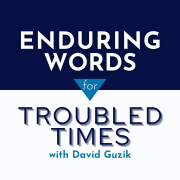Gleaning from God’s Word
Dear Pastor, Preacher, or Bible Teacher –
Here is a thought for your Monday, following a weekend of serving God, His people, and a needy world…
Ruth 2 presents the wonderful picture of Ruth, the Moabitess, finding favor with Boaz. Boaz generously gave her permission to glean in his field.
She gleaned in the field until evening,
and beat out what she had gleaned. (Ruth 2:17)
“Gleaning” was the practice of going into a recently-harvested field and picking up whatever grain remained. God commanded Israel in Leviticus 19:9-10 to deliberately leave some behind for the poor and needy of the land to get food.

God blessed Ruth and people were generous to her. At the same time, she did work hard, and she worked all day long. It wasn’t easy to follow the reapers of the harvest and carefully search for every remaining stalk of grain, carefully picking up even the small pieces left behind. It was work that demanded a lot of focus, attention, and searching.
We should use Ruth’s example to glean everything we can from the word of God:
- Ruth worked hard – we should work hard in studying God’s word.
- Ruth had to stoop to gather every grain – we don’t have to explain every “grain” when we preach and teach, but we can gather the “small grains” for ourselves and benefit from them.
- Ruth could only pick up one grain at a time – we should think through what we learn from the Bible, piece by piece.
- Ruth had to hold on to each grain, and not immediately drop it – we should mentally “hold on” to truth, to meditate on it and benefit from it.
- Ruth took the grain home and threshed it – the benefit from our gleaning in God’s word should first be a blessing to our home.
- Ruth took the threshed grain and winnowed it – what we glean in our study must be carefully prepared to have the most benefit for those who will receive it.
- Ruth was nourished by the grain – we must be nourished by God’s word, and not receive it as only truths to tell others about.
This week, may God bless your gleaning in His word!
Blessings to you in Jesus’ Name – David Guzik
Click Here to Receive Email from David for Pastors, Preachers, and Bible Teachers





